CNC machining services forUSA
Request high-quality fabricated parts today
Our CNC machining services, in USA , makes quality parts for your needs.

We are DongGuan ChengYang, a leading provider of CNC machining services for Georgia. With our state-of-the-art facilities and highly skilled team, we are dedicated to delivering high-quality precision machining solutions for a wide range of industries.
At DongGuan ChengYang, we understand the importance of precision and accuracy in CNC machining. That is why we utilize the latest technology and equipment to ensure that each project is completed with the utmost precision and efficiency. Our team of expert machinists has years of experience and expertise in the field, allowing us to consistently deliver superior results for our clients in Georgia.
Whether you need prototyping, production machining, or custom parts manufacturing, DongGuan ChengYang has the capabilities to meet your needs. Contact us today to learn more about our CNC machining services and how we can help you achieve your project goals in Georgia.
CNC Machining services
Dongguan Chengyang utilizes a full suite of CNC milling equipment—including 3-axis, 4-axis, and 5-axis CNC milling machines, permits us to optimally handle parts ranging from basic to advanced.
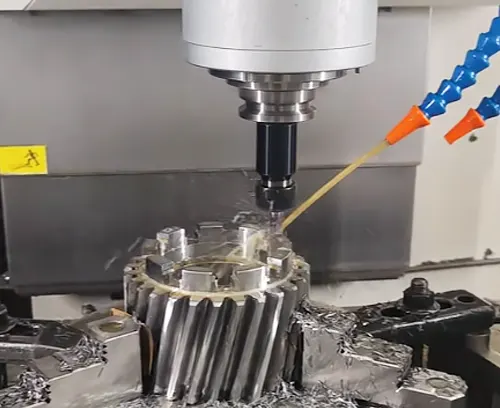
CNC Milling
Machining with precision using CNC equipment, ensuring top-quality components are delivered with speed and accuracy.
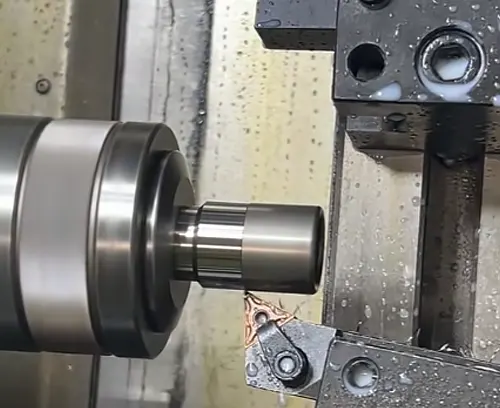
CNC Turnning
Our CNC lathes, turning centers, and mill-turn equipment enable us withpresicion to produce a broad range of parts for every end user.
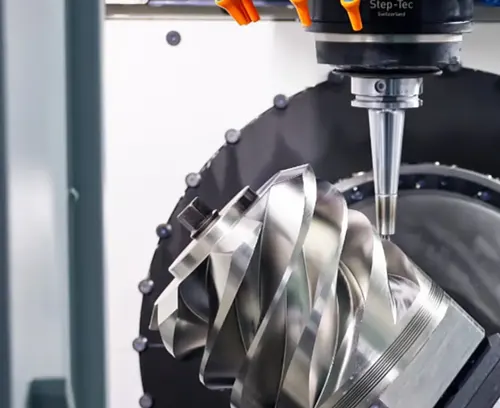
5 Axis CNC Milling
Offer 5-axis machining solutions for complicated and exacting parts. Featuring faster processing, it's perfect for exquisite designs.
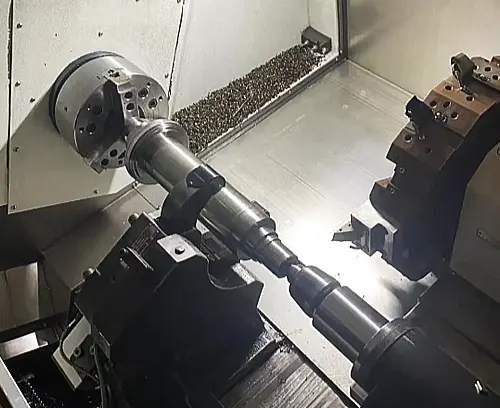
Precision Machining
Ensure precision-driven fabrication by integrating various processes to optimize output, reliability, and quicken production cycles, maintaining high standards in every batch.
Capabilities
Maximum Dimensions
2000mm x 1500mm x 800mm or 78.7 x 59 x 31.5 inches.
Maximum Dimensions
2000mm x 1500mm x 800mm or 78.7 x 59 x 31.5 inches.
Support Threading
Prefer Metric Threads, Also Support UNC and UNF threads.
Wall Thickness
Generally, a workable minimum wall thickness is 0.5mm for metals and 1.0mm for plastics.
Material Available
Metals: Aluminum, Copper, Brass, Bronze, Stainless Steel, Carbon Steel, Steel Alloy, Titanium, and plastic, etc .
Tolerances
Dimension: Depends on the size and material, generally +/- 0.01mm or 0.0004 inches
Common CNC DFM
DFM encourages collaboration between design and manufacturing teams to prevent downstream issues.

Sharp Corner

Undercut

Undercut

Thick Walls

Tolerance Guide

Small Hole

Narrow Area
Metal Materials
We offer instant quotes for over 100 metals and help compare processing material costs.Our platform offers quick quotes for 100+ metals and helps you assess processing costs.
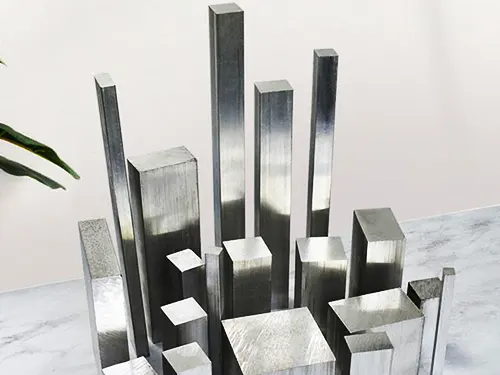
Aluminum
Aluminum is a popular material for CNC machining due to its excellent machinability, corrosion resistance, and high strength-to-weight ratio. It is commonly used in various industries for producing a wide range of products, from automotive parts to electronic enclosures. Some common types of aluminum materials used in CNC machining include 6061-T6, 7075-T6, and 2024-T3. 6061-T6 is known for its good weldability and high strength, making it suitable for structural applications. 7075-T6 is exceptionally strong and used for aerospace components. 2024-T3 is prized for its high strength and fatigue resistance, making it ideal for applications where toughness is crucial. Overall, aluminum offers a versatile and cost-effective solution for CNC machining needs.
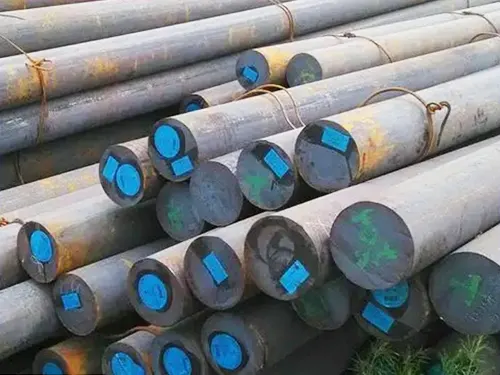
Carbon Steel
Carbon steel is a type of steel that contains higher levels of carbon compared to other types of steel, making it strong and durable. It is widely used in CNC machining due to its ability to be easily shaped and machined. Some common types of carbon steel used in CNC machining include 1018, a general-purpose steel with good weldability and machinability; 1045, a medium carbon steel with good strength and impact properties; and A36, a low carbon steel that is commonly used for structural purposes. These types of carbon steel are popular choices for CNC machining due to their versatility, cost-effectiveness, and ability to be heat-treated for improved hardness and strength.
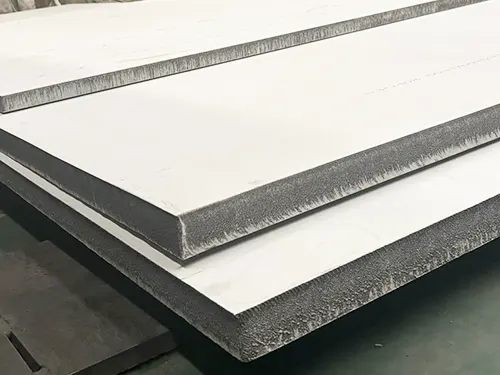
Stainless Steel
Stainless steel is a popular material used in CNC machining due to its high strength, durability, and resistance to corrosion. It is an alloy of iron, carbon, and other elements like chromium, nickel, and molybdenum. Common types of stainless steel used in CNC machining include 303 stainless steel, which is easy to machine and has good corrosion resistance; 304 stainless steel, known for its high corrosion resistance and formability; 316 stainless steel, favored for its superior corrosion resistance in harsh environments; and 17-4 stainless steel, which combines high strength and good corrosion resistance. These different types of stainless steel offer a range of properties and can be used for a variety of CNC machining applications.
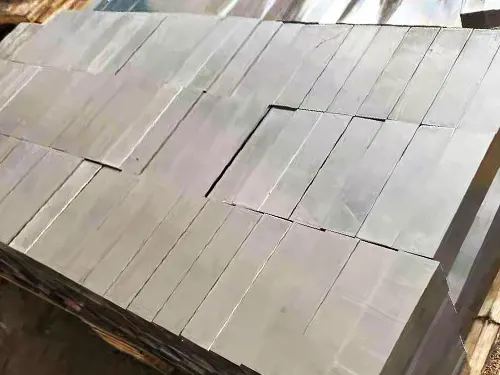
Tool Steel
Tool steel is a type of material commonly used in CNC machining due to its high resistance to wear, heat, and abrasion. This makes it ideal for producing tools and components that need to withstand repeated use and high cutting speeds. Some common types of tool steels used in CNC machining include H13, D2, A2, O1, and M2. H13 tool steel is known for its excellent hot hardness, wear resistance, and toughness, making it suitable for hot work applications. D2 tool steel is often used for cutting tools and dies due to its high wear resistance. A2 tool steel is known for its versatility and can be used for a variety of machining applications. O1 and M2 tool steels are also commonly used for their high toughness and wear resistance qualities in CNC machining.
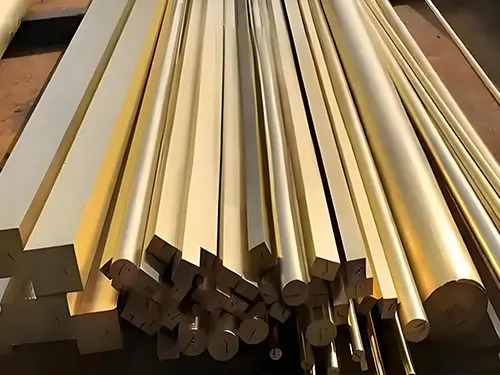
Brass
Brass is a popular material used in CNC machining due to its excellent machinability, corrosion resistance, and aesthetic appeal. It is an alloy of copper and zinc, typically containing around 60-80% copper. Common types of brass used in CNC machining include C360, C380, and C385. C360, also known as free machining brass, is the most widely used type due to its excellent machinability and high resistance to corrosion. C380 brass is commonly used for valves, fittings, and other industrial applications due to its high strength and wear resistance. C385 brass is often used in architectural and decorative applications due to its attractive golden color. Overall, brass offers a combination of properties that make it an ideal choice for a wide range of CNC machining projects.
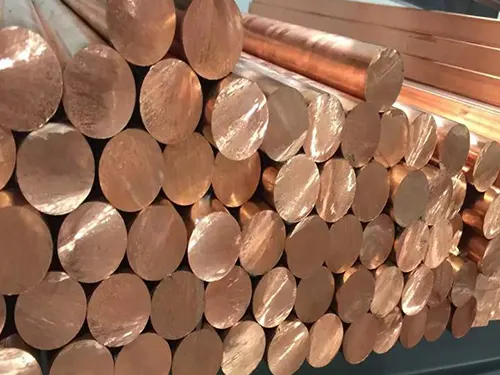
Copper
Cooper is a commonly used material in the field of CNC machining due to its excellent machinability and conductivity properties. It is a soft metal that can be easily formed and shaped with precision, making it ideal for producing intricate parts and components. Common types of cooper materials used in CNC machining include C11000 (also known as electrolytic-tough pitch or ETP), C14500 (also known as tellurium copper), and C17200 (also known as beryllium copper). Each type of cooper material offers unique characteristics that cater to different machining needs, such as high strength, corrosion resistance, or thermal conductivity. Overall, cooper’s versatility and ease of machining make it a popular choice for various CNC applications.
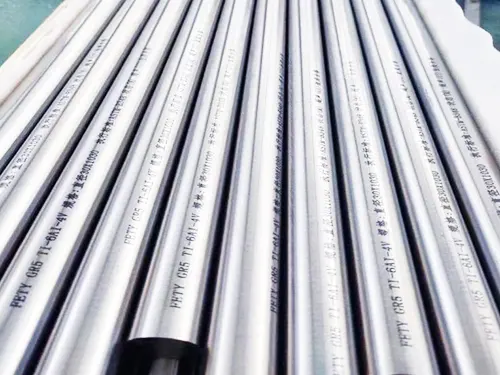
Titanium
Titanium is a versatile and popular material used in CNC machining due to its exceptional strength-to-weight ratio, corrosion resistance, and biocompatibility. It is commonly used in the aerospace, medical, and automotive industries for components that require high strength and durability. Some common types of titanium alloys used in CNC machining include Grade 1 (commercially pure titanium), Grade 5 (Ti-6Al-4V), Grade 9 (Ti-3Al-2.5V), and Grade 23 (Ti-6Al-4V ELI). These alloys offer a range of properties such as high strength, lightweight, heat resistance, and excellent weldability, making them ideal for a variety of machining applications.
Plastic Materials
We offer instant quotes for over 200 plastics and help compare processing material costs.
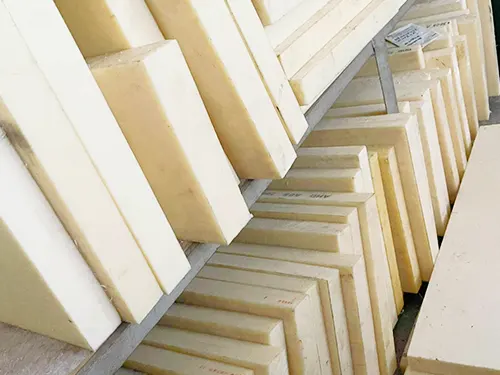
ABS
ABS, or Acrylonitrile Butadiene Styrene, is a popular thermoplastic material used in CNC machining. It is known for its high strength, durability, and resistance to heat and chemicals. One of the main advantages of ABS in CNC machining is its ability to be easily machined, allowing for complex and precise designs to be created. Another advantage is its affordability, making it a cost-effective option for many projects. However, ABS does have some disadvantages. It has a tendency to warp when subjected to high temperatures, which can lead to dimensional inaccuracies. Additionally, ABS can be prone to shrinking, causing issues with the final product’s size and shape. Despite these drawbacks, ABS remains a widely used material in CNC machining due to its overall versatility and performance.
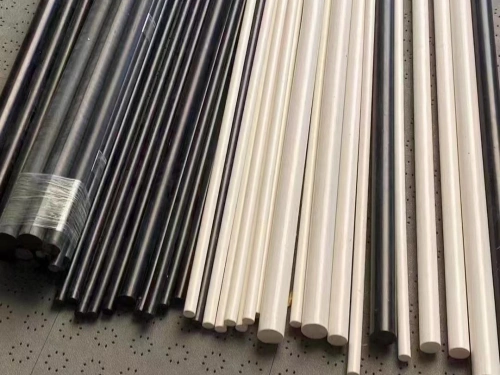
PMMA
PMMA, or polymethyl methacrylate, is a type of transparent plastic that is commonly used in CNC machining. It is a versatile material known for its high optical clarity, making it ideal for applications where visibility is important. PMMA is also lightweight and has good impact resistance, making it suitable for a wide range of products such as display cases, medical devices, and lighting fixtures. However, PMMA does have its drawbacks. It has a lower heat resistance compared to other plastics, which can limit its use in high-temperature applications. Additionally, PMMA can be prone to scratching and can be difficult to bond with other materials. Despite these disadvantages, PMMA remains a popular choice for CNC machining due to its optical properties and versatility.
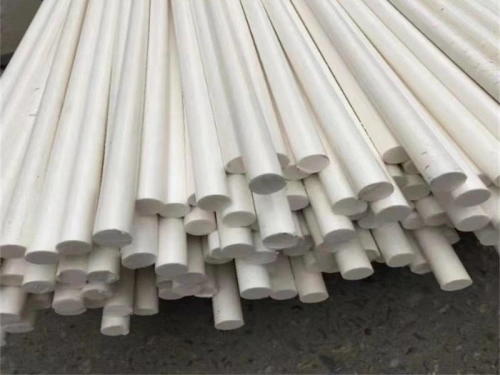
PE
PE, or Precision Engineering, is a crucial aspect of CNC machining that involves the production of highly precise and accurate components. The advantage of PE in CNC machining is the ability to achieve tight tolerances and exceptional surface finishes, ensuring the quality and precision of the final product. This results in high repeatability and consistency in the manufacturing process, ultimately leading to improved efficiency and reduced cost. However, one disadvantage of PE is the higher cost associated with the use of specialized equipment and skilled labor. Additionally, the complexity of PE processes may require longer production times, thereby potentially delaying project timelines. Despite these drawbacks, the advantages of PE in CNC machining outweigh the disadvantages when it comes to producing high-quality, precise components.
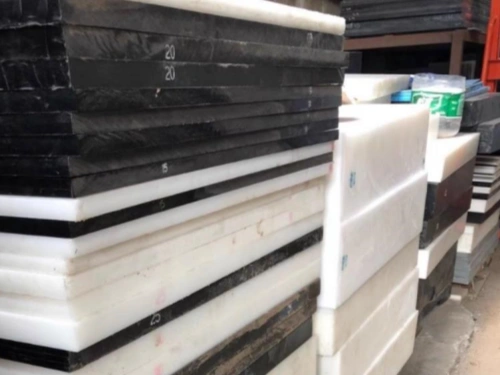
Nylon
Nylon is a popular material used in CNC machining due to its versatility and durability. It is a synthetic polymer that is known for its high tensile strength and resistance to wear and tear. One of the main advantages of using Nylon for CNC machining is its flexibility, making it ideal for producing intricate and complex parts. Additionally, Nylon is lightweight, making it a cost-effective option for manufacturing components that do not require high strength. However, Nylon does have some disadvantages as well. It has a tendency to absorb moisture, which can impact its dimensional stability and lead to warping. Nylon also has a lower melting point compared to other engineering plastics, which can limit its use in high-temperature applications.
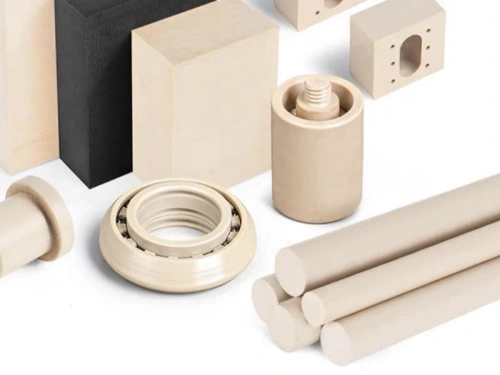
PEEK
PEEK, or polyetheretherketone, is a high-performance thermoplastic often used in CNC machining due to its excellent mechanical properties and resistance to chemical and heat exposure. One of the main advantages of using PEEK for CNC machining is its exceptional strength and stiffness, making it ideal for applications that require high temperature resistance and durability. Additionally, PEEK is known for its low moisture absorption and excellent wear properties, making it a reliable choice for critical components. However, one of the main disadvantages of PEEK is its high cost compared to other thermoplastics, which may limit its use in budget-conscious projects. Additionally, PEEK can be challenging to machine due to its high melting point and tendency to warp if not properly cooled during machining.
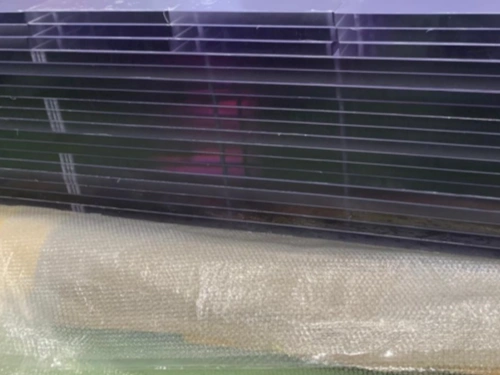
PC
A PC for CNC machining is a personal computer utilized to control and program computer numerical control (CNC) machines. Its primary advantage is the ability to create intricate and precise designs with minimal human error. This allows for increased productivity and efficiency in the manufacturing process. Additionally, PCs can store a vast amount of data for future use and modifications. However, some disadvantages of using a PC for CNC machining include the high initial cost of purchasing and installing the software and hardware. There may also be a learning curve for operators who are unfamiliar with computer programming. Overall, the benefits of using a PC for CNC machining outweigh the disadvantages, making it a valuable tool in the manufacturing industry.
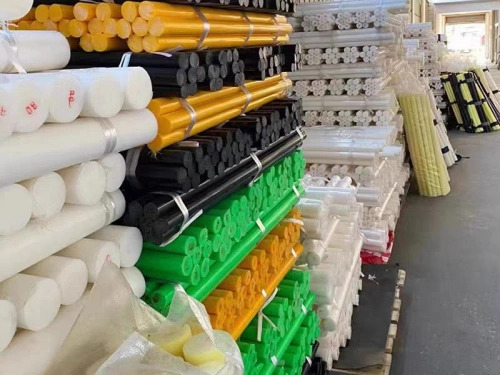
PP
PP, or Polypropylene, is a commonly used material in CNC machining due to its versatility and cost-effectiveness. One of its primary advantages is its excellent chemical resistance, making it suitable for a wide range of applications. It is also known for its lightweight and durable properties, allowing for intricate designs and complex shapes to be easily produced. However, PP does have its disadvantages. It can be prone to warping or deformation if not properly controlled during machining, and its low melting point can limit the available cutting speeds. Additionally, it may not be as strong or heat-resistant as other materials, making it unsuitable for certain high-stress or high-temperature applications. Despite these drawbacks, PP remains a popular choice for many CNC machining projects due to its affordability and ease of use.
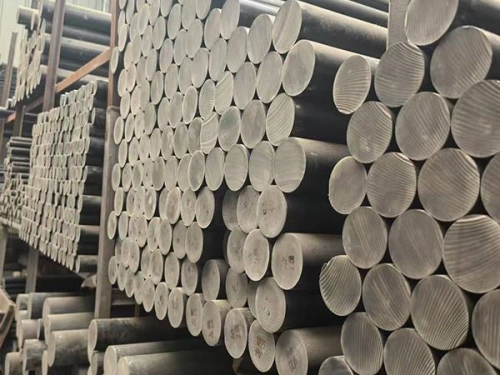
PET
PET, or polyethylene terephthalate, is a commonly used material in CNC machining due to its excellent mechanical properties and high chemical resistance. Its advantages include high stiffness, low friction, and resistance to wear and tear, making it ideal for producing durable and precise parts. PET is also lightweight, making it a cost-effective option for manufacturing components. However, PET can be challenging to work with in CNC machining due to its tendency to warp and melt at high temperatures, which can result in poor surface finish and dimensional accuracy. Additionally, PET is not suitable for high-temperature applications as it has a relatively low melting point. Despite its drawbacks, PET remains a popular choice for CNC machining applications where strength and resistance are crucial.
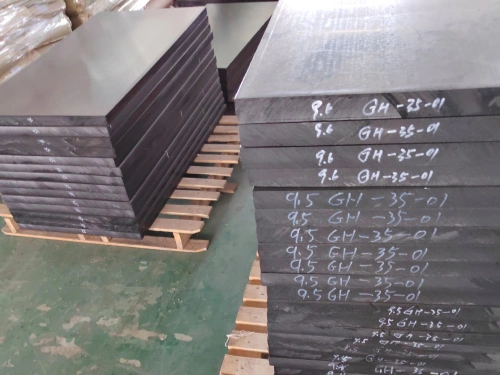
POM
POM, or Polyoxymethylene, is a versatile material widely used in CNC machining due to its excellent mechanical properties. Its advantages include high rigidity, low friction, and excellent dimensional stability, making it ideal for producing precision parts. POM also has good chemical resistance and can withstand a wide range of temperatures, further adding to its appeal in CNC machining applications. However, there are also some disadvantages to using POM. It can be more prone to deformation under high heat compared to other materials, and it may require additional processing steps to achieve the desired surface finish. Additionally, POM is not recommended for applications where it will be in contact with high concentrations of chemicals, as it may degrade over time.
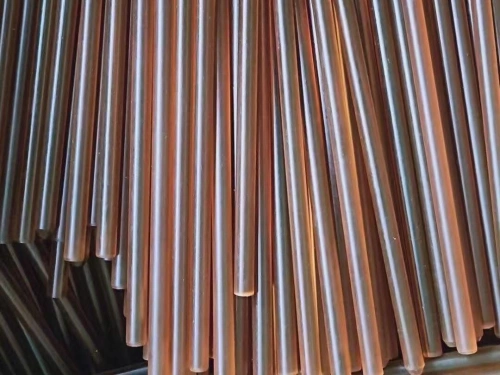
PVC
PVC, also known as Polyvinyl Chloride, is a popular material used in CNC machining due to its versatility and affordability. It is a lightweight and durable plastic that is easy to cut, shape, and mold into various parts and components. One of the main advantages of using PVC for CNC machining is its low cost compared to other materials, making it an ideal choice for cost-effective production. Additionally, PVC is resistant to chemicals, weathering, and corrosion, making it suitable for a wide range of applications. However, PVC can be prone to melting and warping at high temperatures, limiting its use in applications that require high heat resistance. Its low strength compared to metals also makes it less suitable for heavy-duty applications.
Surface Finishes
Our skilled team is dedicated to expert surface treatment for your products.
| Name | Description | Materials | Color | Texture | More |
|---|---|---|---|---|---|
| Brushing | Brushing is the act of cleaning your teeth and gums using a toothbrush and toothpaste. It helps to remove plaque, prevent cavities, and maintain good oral hygiene. Brushing should be done at least twice a day for optimal results. |
Aluminum, Brass, Stainless Steel, Steel, ABS,etc | N/A | Satin | |
| Sand Blast | Sandblasting, or abrasive blasting, is a process used to clean, shape, or texture a surface using high-pressure air or water with sand or other abrasive materials. It is commonly used in industrial, manufacturing, and construction applications. |
All Metal Materials, Plastic | N/A | Matte | |
| Tumbling | Tumbling is a dynamic form of gymnastics that involves a series of acrobatic movements such as flips, somersaults, and twists. It requires strength, flexibility, and coordination to execute these movements safely and effectively. |
All Materials | N/A | Smooth, Matte | |
| Polishing | Polishing is a process of smoothing a surface through rubbing or grinding techniques to create a shiny and reflective finish. It is commonly used in metalwork, woodworking, and automotive detailing to enhance visual appeal. |
All Materials | N/A | Smooth | |
| Anodizing | Anodizing is an electrochemical process that enhances the surface properties of metals, particularly aluminum. It creates a durable, corrosion-resistant layer by immersing the metal in an electrolyte solution and passing an electric current through it. |
Aluminum, Titanium | Clear, Yellow, Green, Blue, Black, etc |
Smooth, matte finish. | |
| Painting | Painting is a form of visual art where colors are applied on a surface using brushes or tools. It can depict various subjects, emotions, and concepts, serving as a means of expression and communication. |
All Materials | Clear, Yellow, Green, Blue, Black, Multiple | Gloss, semi-gloss, flat, metallic, textured | |
| Black Oxide | Black oxide is a conversion coating used to add corrosion resistance and improve the aesthetics of metal surfaces. It creates a sleek black finish by chemically reacting with the surface of the metal. |
Steel, Stainless Steel | Black | Smooth, matte | |
| Electroplating | Electroplating is a process in which a thin layer of metal is deposited onto a substrate using an electric current. This technique is commonly used for decorative purposes, to prevent corrosion, or to improve the surface properties of an object. |
Aluminum, Steel, Stainless Steel | Gold, Silver, Nickel, Copper, Brass, Zinc, Chrome | Smooth, glossy finish | |
| Powder Coating | Powder coating is a dry finishing process in which fine particles of pigment and resin are electrostatically charged and sprayed onto a surface. The powder is then cured under heat to form a durable, smooth, and high-quality finish that is resistant to chips, scratches, and fading. |
Aluminum, Stainless Steel, Steel,etc | Custom | Gloss, matte or semi-gloss | |
| Alodine | Alodine is a chemical conversion coating often used in the aerospace industry to protect aluminum surfaces from corrosion. It helps to improve paint adhesion and provides a protective barrier against environmental elements. |
Aluminum, Stainess Steel | Clear, Gold | As machined | |
| Passivation | Passivation is a process used to protect metal surfaces from corrosion. It involves the formation of a passive oxide layer that prevents further oxidation and enhances the material's resistance to environmental damage. |
Stainess Steel | N/A | Matte | |
| Electroless Plating | Electroless plating, also known as autocatalytic plating, is a process of depositing a metal coating on a surface without using an external electrical power source. This method is widely used in industries for its uniformity and ability to coat complex shapes. |
Metal, Plastic | Gold, Silver, Nickel, Copper, Brass, Zinc, Chrome | Smooth, glossy finish |
Gallery Parts
CNC machining services Locations Near Georgia, USA
We’re specialists in surface treatment, backed by a team of experienced professionals.
FAQ
Here, some of the most common questions about CNC machining services for Georgia, USA. ” free to contact us if you have any question.”
Introduction
CNC machining services are essential for various industries in Georgia, USA. If you’re considering utilizing CNC machining services for your business, you may have some questions. Below are 10 pairs of frequently asked questions and their answers to help you better understand CNC machining services in Georgia.
Q: What is CNC machining?
A: CNC machining, or computer numerical control machining, is a manufacturing process that utilizes pre-programmed computer software to control machining tools. This technology can produce highly precise and complex parts efficiently.
Q: What industries benefit from CNC machining services in Georgia?
A: Industries such as aerospace, automotive, medical, and electronics benefit greatly from CNC machining services in Georgia due to the technology’s ability to produce high-quality, precise parts.
Q: How can CNC machining services help my business in Georgia?
A: CNC machining services can help your business in Georgia by providing cost-effective, efficient, and high-quality manufacturing solutions for your specific needs.
Q: What materials can be used in CNC machining services in Georgia?
A: CNC machining services in Georgia can work with a wide range of materials, including metals like aluminum, stainless steel, and titanium, as well as plastics and composites.
Q: How do I choose the right CNC machining service provider in Georgia?
A: When choosing a CNC machining service provider in Georgia, consider factors such as experience, capabilities, quality control processes, and customer reviews to ensure you find a reliable partner.
Q: What is the typical turnaround time for CNC machining services in Georgia?
A: Turnaround times for CNC machining services in Georgia can vary depending on the complexity of the project, materials used, and the service provider’s workload. It’s best to discuss turnaround times with your chosen provider upfront.
Q: What is the difference between CNC milling and CNC turning?
A: CNC milling involves rotating cutting tools to remove material from a workpiece, while CNC turning involves rotating the workpiece while a cutting tool removes material. Both processes are commonly used in CNC machining services in Georgia.
Q: Can CNC machining services in Georgia handle large-scale production orders?
A: Yes, CNC machining services in Georgia can handle large-scale production orders efficiently and effectively. The technology’s automation capabilities make it ideal for high-volume manufacturing.
Q: Are CNC machining services in Georgia cost-effective for small businesses?
A: While CNC machining services in Georgia may have higher initial costs compared to traditional machining methods, they can be cost-effective for small businesses in the long run due to their efficiency, accuracy, and reduced material waste.
Q: How can I request a quote for CNC machining services in Georgia?
A: To request a quote for CNC machining services in Georgia, simply reach out to a reputable service provider with your project specifications, material requirements, and desired quantities. They will provide you with a detailed quote based on your needs.
Conclusion
Understanding CNC machining services in Georgia is important for businesses looking to optimize their manufacturing processes. By familiarizing yourself with the frequently asked questions and answers provided above, you can make informed decisions when choosing CNC machining services for your specific needs in Georgia, USA.
